
Koror: The Jewel of Micronesia
Koror, the bustling heart of the Republic of Palau, is a paradise for tourists seeking both adventure and tranquility. Nestled in the western Pacific Ocean, Koror boasts stunning natural beauty with its turquoise waters, lush tropical landscapes, and unique marine biodiversity. This city offers an unparalleled experience for divers and snorkelers, with the world-renowned Jellyfish Lake and the Rock Islands—an archipelago of over 300 islands formed from ancient coral reefs. Beyond its natural wonders, Koror is rich in cultural heritage and history. Visitors can explore traditional Palauan culture at the Belau National Museum or learn about the region's World War II history at the Etpison Museum. The local markets and street vendors provide a taste of Palauan cuisine, where you can savor fresh seafood and tropical fruits. Koror is also an excellent base for island-hopping adventures. With easy access to nearby islands and their pristine beaches, you can enjoy boating, kayaking, and paddleboarding. The city's warm hospitality and vibrant culture make it a memorable destination for any traveler looking to immerse themselves in the beauty and traditions of Micronesia.
Local tips in Koror
- Visit Jellyfish Lake early in the morning to avoid crowds and get the best experience with the jellyfish.
- Hire a local guide for snorkeling or diving trips to explore the best underwater spots safely.
- Sample traditional Palauan dishes like taro and fresh seafood at the local markets for an authentic culinary experience.
- Bring reef-safe sunscreen to protect the delicate marine ecosystems.
- Respect local customs and traditions, especially when visiting cultural sites and interacting with residents.
Koror: The Jewel of Micronesia
Koror, the bustling heart of the Republic of Palau, is a paradise for tourists seeking both adventure and tranquility. Nestled in the western Pacific Ocean, Koror boasts stunning natural beauty with its turquoise waters, lush tropical landscapes, and unique marine biodiversity. This city offers an unparalleled experience for divers and snorkelers, with the world-renowned Jellyfish Lake and the Rock Islands—an archipelago of over 300 islands formed from ancient coral reefs. Beyond its natural wonders, Koror is rich in cultural heritage and history. Visitors can explore traditional Palauan culture at the Belau National Museum or learn about the region's World War II history at the Etpison Museum. The local markets and street vendors provide a taste of Palauan cuisine, where you can savor fresh seafood and tropical fruits. Koror is also an excellent base for island-hopping adventures. With easy access to nearby islands and their pristine beaches, you can enjoy boating, kayaking, and paddleboarding. The city's warm hospitality and vibrant culture make it a memorable destination for any traveler looking to immerse themselves in the beauty and traditions of Micronesia.
When is the best time to go to Koror?
Iconic landmarks you can’t miss
Palau Royal Resort
Discover the perfect blend of luxury and nature at Palau Royal Resort, your gateway to the breathtaking beauty of Palau.

Palau Pacific Resort
Discover the elegance and serenity of Palau Pacific Resort, a premier destination for luxury and adventure in the heart of Koror, Palau.

Nan Madol
Experience the ancient wonder of Nan Madol, a UNESCO site with stunning stone ruins and rich history nestled in the heart of Micronesia.
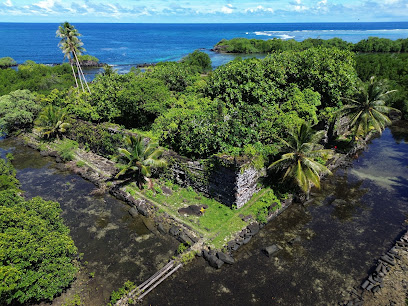
COVE Resort Palau
Experience luxury and adventure at COVE Resort Palau, where stunning ocean views meet vibrant local culture in a tropical paradise.
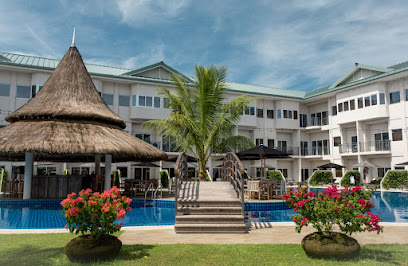
Belau National Museum
Discover the captivating culture and history of Palau at the Belau National Museum, the nation's premier cultural attraction.
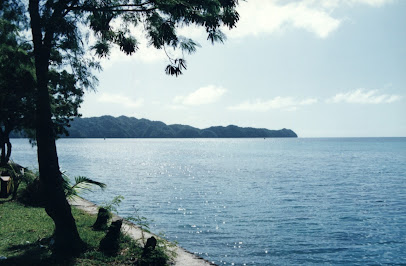
Ngardmau Waterfalls
Explore the breathtaking Ngardmau Waterfalls in Ngiwal, Palau - a stunning natural attraction perfect for adventure and relaxation.
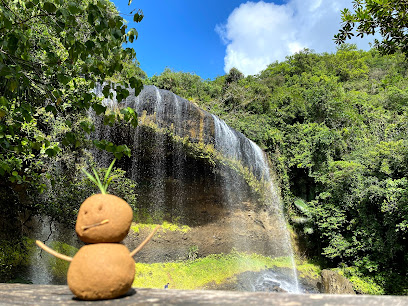
Fish 'n Fins Palau
Discover the underwater paradise of Palau with Fish 'n Fins, your ultimate scuba diving and adventure sports destination in Koror.
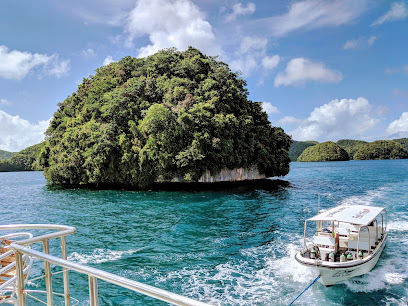
Long Island Park
Explore Long Island Park in Koror, Palau, a serene retreat with lush landscapes perfect for picnics, walks, and observing the rich biodiversity of the island.
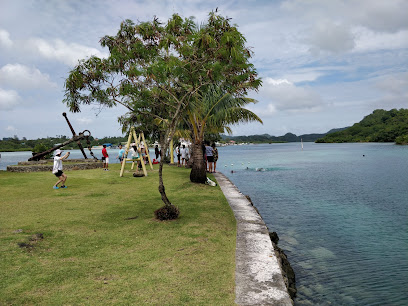
Jellyfish Lake
Explore Jellyfish Lake in Koror, Palau – a serene oasis where you can swim with millions of golden jellyfish in a breathtaking tropical setting.
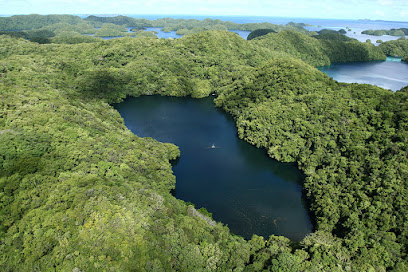
Japan-Palau Friendship Bridge
Explore the Japan-Palau Friendship Bridge, a stunning architectural marvel celebrating the bond between Japan and Palau amidst breathtaking landscapes.
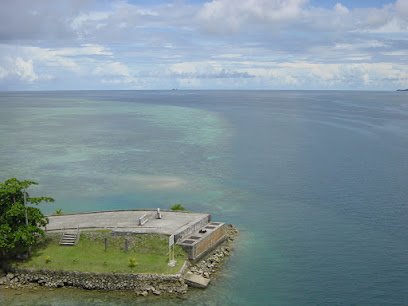
Palau Central Hotel
Experience the charm of Palau at Palau Central Hotel, where comfort meets adventure in the heart of Koror.
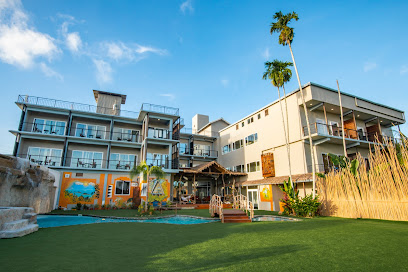
Dolphins Pacific
Explore the wonders of marine life at Dolphins Pacific in Koror, Palau - an unforgettable experience blending education, conservation, and fun for the whole family.
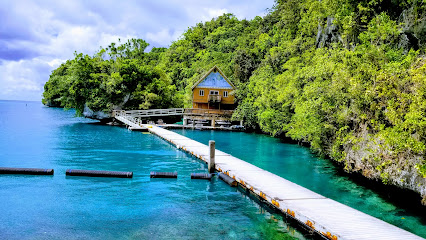
Palau Aquarium
Explore the vibrant marine life of Palau at the Palau Aquarium, where education meets conservation in a stunning underwater paradise.
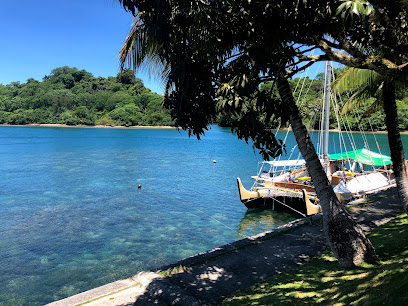
Etpison Museum
Explore Palau's cultural heritage at the Etpison Museum, showcasing artifacts and stories that reflect the island's rich history and traditions.
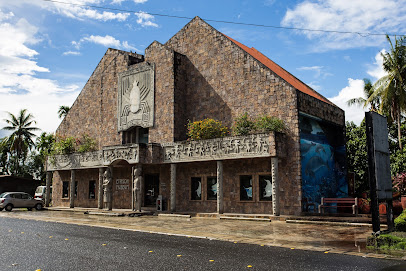
Babeldaob
Discover the natural beauty and rich cultural heritage of Babeldaob, Palau's largest island, a paradise for adventure and relaxation.
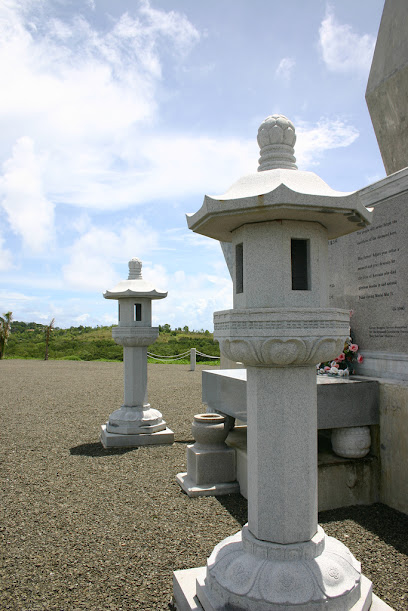
Unmissable attractions to see
Milky Way
Explore the enchanting Milky Way in Koror, Palau, where crystal-clear waters and vibrant marine life await every adventurer.
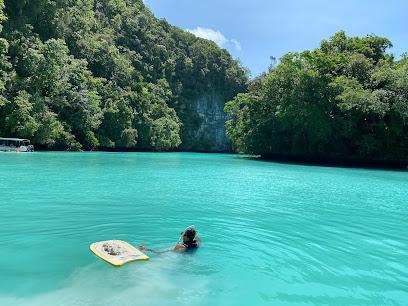
Belau National Museum
Explore the cultural heart of Palau at Belau National Museum, where history and heritage come alive through engaging exhibits and artifacts.
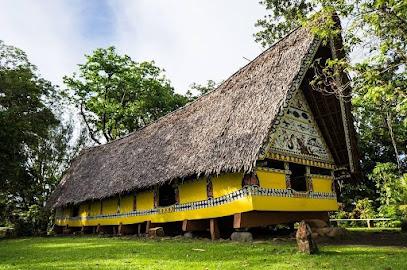
Belau National Museum
Discover Palau's cultural heritage at Belau National Museum, showcasing history, art, and traditions of this beautiful Pacific island nation.
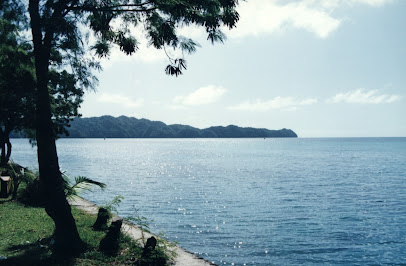
Ngardmau Waterfalls
Explore the breathtaking Ngardmau Waterfalls in Palau, where nature's beauty and adventure await in a stunning tropical paradise.
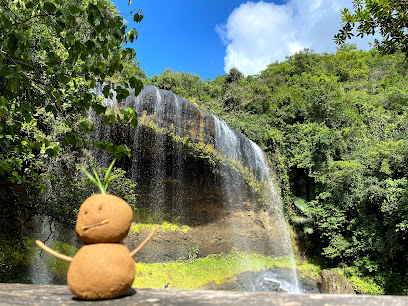
Long Island Park
Explore the serene beauty and vibrant ecology of Long Island Park in Koror, Palau - a must-visit destination for nature lovers and tranquility seekers.
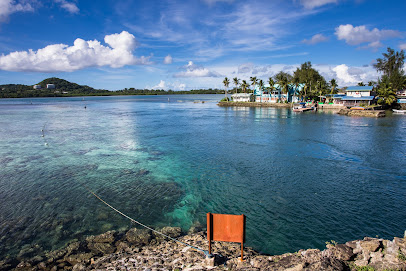
Jellyfish Lake
Experience the magical underwater world of Jellyfish Lake in Koror, Palau, where you can swim among millions of non-stinging jellyfish in a breathtaking natural setting.
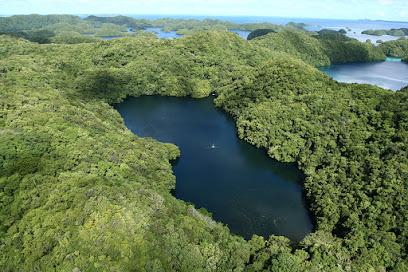
Japan-Palau Friendship Bridge
Experience the breathtaking Japan-Palau Friendship Bridge, a stunning symbol of unity and beautiful views in Palau.
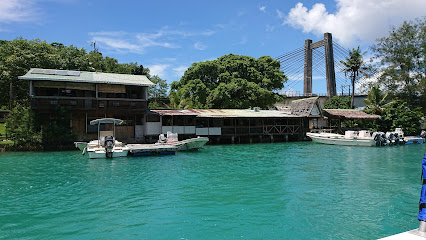
Island Paradise Resort Club
Discover the enchanting beauty of Palau at the Island Paradise Resort Club, a luxurious escape surrounded by breathtaking waterfront views and tropical landscapes.
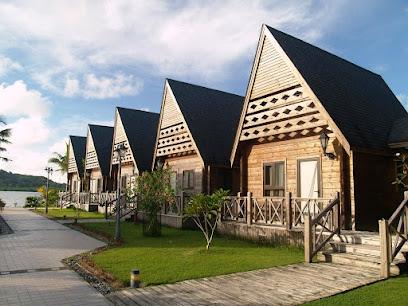
Palau Aquarium
Explore the vibrant marine life of Palau at Palau Aquarium, a captivating attraction showcasing the beauty and importance of ocean conservation.
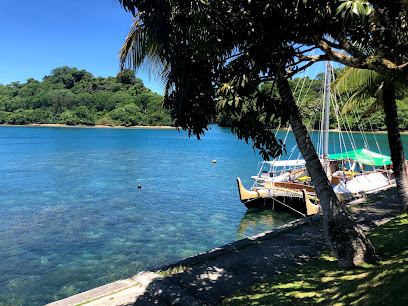
German Channel
Explore the German Channel in Palau, a vibrant underwater paradise filled with colorful coral reefs and diverse marine life.
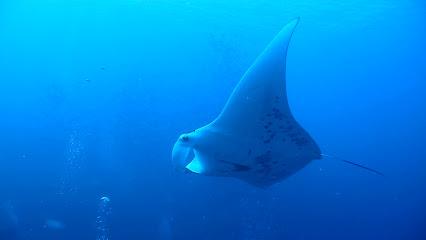
Etpison Museum
Explore the cultural treasures of Palau at Etpison Museum, where history, art, and tradition come together in a captivating experience.
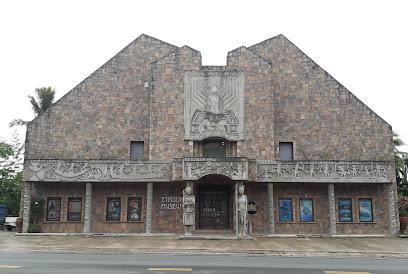
Ngermeaus Island Park
Explore Ngermeaus Island Park, a serene paradise in Palau, offering stunning landscapes, diverse wildlife, and unforgettable outdoor adventures.
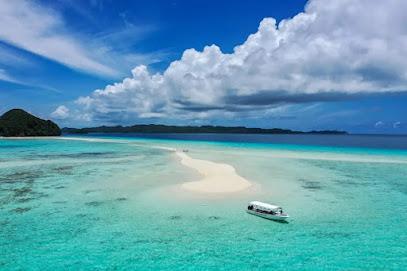
Etpison Museum
Explore Palau's rich cultural heritage at the Etpison Museum, where history, art, and local traditions come alive in an enlightening experience.
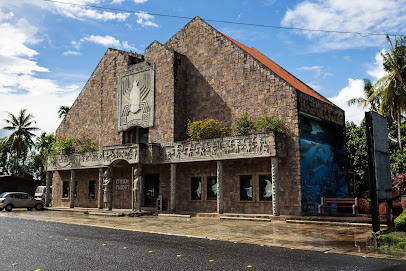
Neco Marine Palau
Explore the underwater wonders of Palau with Neco Marine, offering diving, snorkeling, and eco-friendly tours for all adventure seekers.
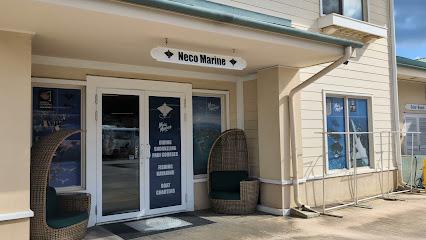
Badrulchau Stone Monoliths
Explore the ancient Badrulchau Stone Monoliths, a captivating cultural landmark in Palau that offers a glimpse into the island's rich history and artistry.
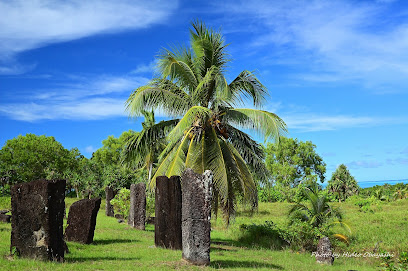
Essential places to dine
Drop Off Bar and Grill
Experience authentic Palauan flavors at Drop Off Bar and Grill - where delicious food meets stunning views in Koror.
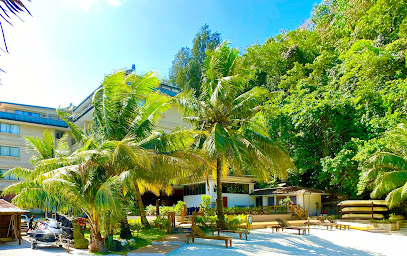
Palau Hotel
Discover culinary delights at Palau Hotel in Koror—where local flavors meet breathtaking views for an unforgettable dining experience.
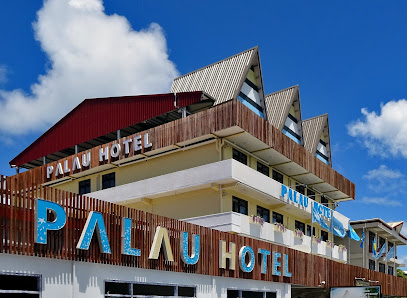
Palasia Hotel Palau
Discover luxury at Palasia Hotel Palau - your gateway to relaxation and adventure in the heart of Koror.
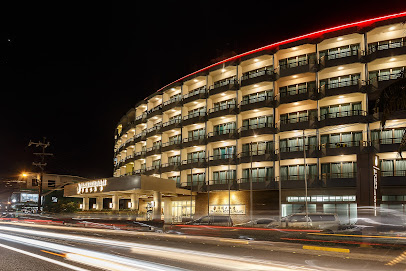
The Taj
Savor authentic Indian flavors at The Taj in Koror - where culinary excellence meets cultural richness.
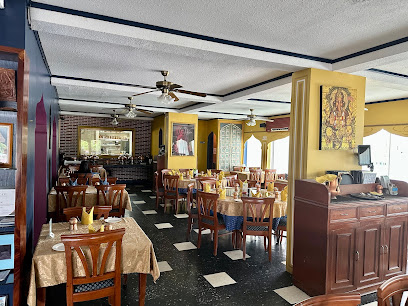
Elilai Seaside Dining
Experience exquisite fine dining at Elilai Seaside Dining in Koror, where stunning ocean views meet delectable cuisine inspired by local flavors.
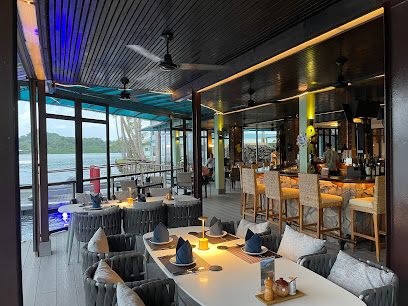
Sam's Tours Palau
Explore the wonders of Palau with unforgettable diving and snorkeling experiences at Sam's Tours - your adventure awaits!
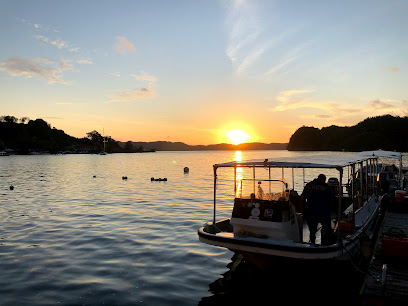
Tori Tori
Experience authentic Japanese cuisine at Tori Tori in Koror, Palau - where every dish tells a story.
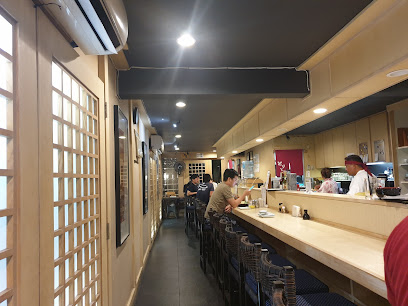
The Canoe House
Experience vibrant dining at The Canoe House in Koror - where delicious food meets live entertainment in beautiful Palau.
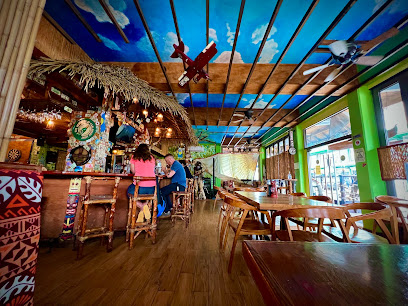
Marina Café VITA
Discover exquisite dining at Marina Café VITA in Koror, where stunning sea views meet delectable cuisine crafted by expert chefs.
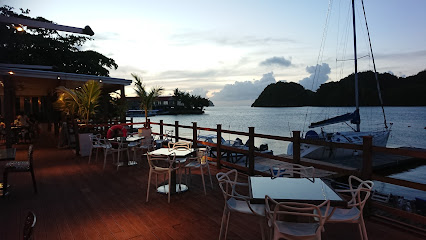
Rock Island Cafe
Experience authentic Palauan cuisine at Rock Island Cafe in Koror - where every meal offers stunning views and fresh local flavors.
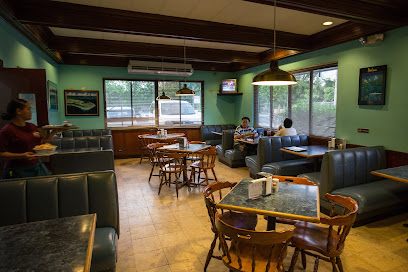
Palm Bay Bistro
Discover the vibrant fusion of flavors at Palm Bay Bistro in Malakal - a must-visit Pan Asian restaurant with stunning seaside views.
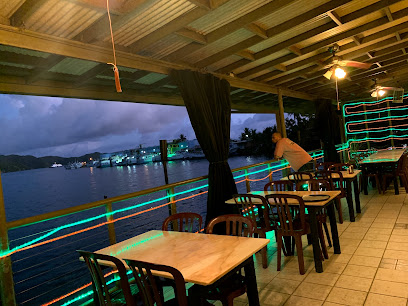
Carp Restaurant
Discover delicious dining at Carp Restaurant in Koror, Palau – where local flavors meet affordability amidst stunning island scenery.
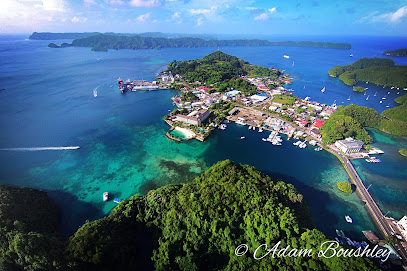
7 Eat Restaurant
Discover the authentic flavors of Palau at 7 Eat Restaurant in Koror - where tradition meets modern dining.
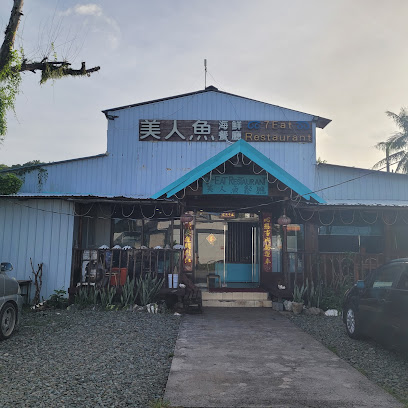
Palau Umi Korean and Japanese Cuisine
Discover authentic Korean and Japanese flavors at Palau Umi – a must-visit culinary destination in Koror.
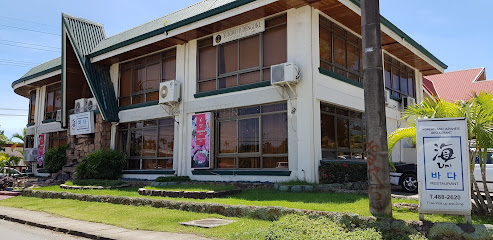
Okemii Deli & Internet Cafe
Discover Okemii Deli & Internet Cafe in Koror, Palau - where delicious cuisine meets cozy ambiance and connectivity.
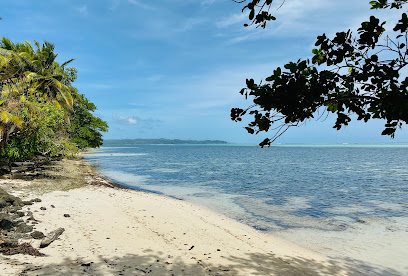
Markets, malls and hidden boutiques
L'Amarena Gelato Shop (Gelateria Italiana)
Experience authentic Italian gelato and delightful desserts at L'Amarena Gelato Shop in Palau, a sweet escape for every visitor.
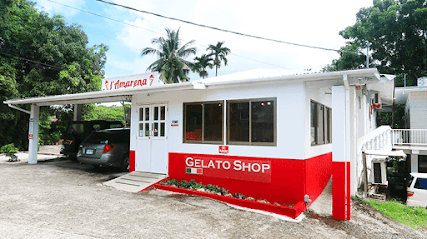
Sam's Tours Palau
Dive into the vibrant marine life of Palau with Sam's Tours—your gateway to spectacular underwater adventures and delightful dining experiences.
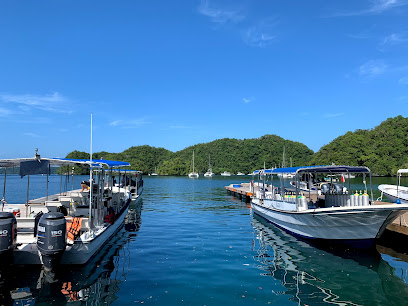
WCTC Shopping Center
Experience the vibrant shopping and dining scene at WCTC Shopping Center, a must-visit retail destination in Palau for tourists.
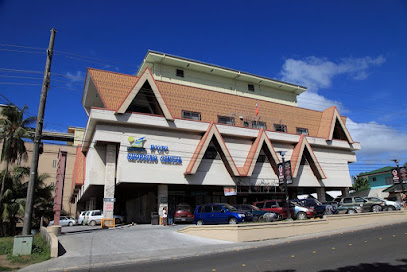
Palau Dive Adventures
Explore the underwater wonders of Palau with Palau Dive Adventures, your ultimate dive shop for unforgettable scuba experiences.
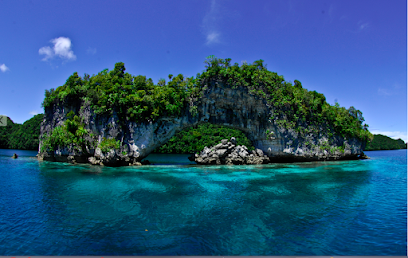
Surangel and Sons Co. - Koror
Experience the best of shopping and local culture at Surangel and Sons Co. in Koror, Palau – a vibrant hub for travelers and locals alike.
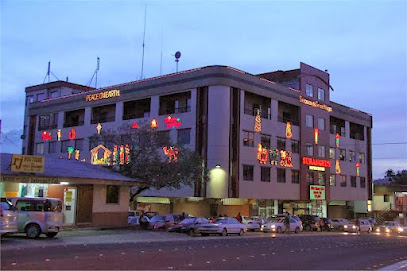
Rur Gift Shop & Cafe
Explore the heart of Palauan culture at Rur Gift Shop & Cafe, where unique souvenirs and local flavors await every traveler.
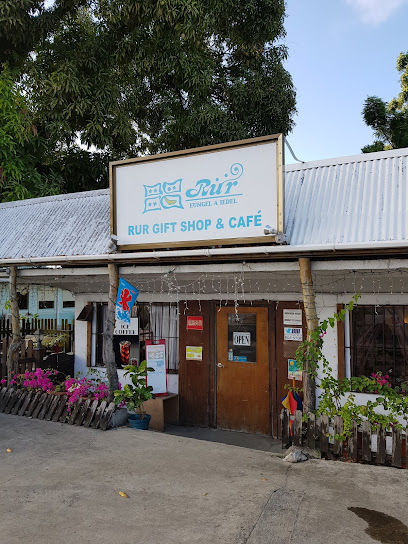
UN Micronesia-Palau Office
Explore the significance of the UN Micronesia-Palau Office, a center for international diplomacy and sustainability in the heart of the Pacific.

Lius Gift Shop
Explore Lius Gift Shop in Koror for unique souvenirs, local delicacies, and authentic Palauan crafts that capture the essence of your journey.
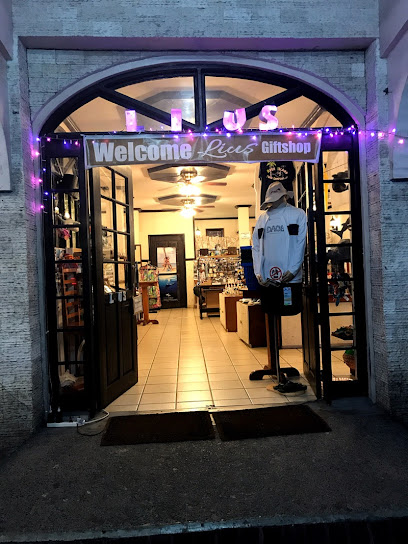
Dody’s Market
Discover unique Palauan handicrafts and souvenirs at Dody’s Market, your go-to gift shop in Koror, Palau.
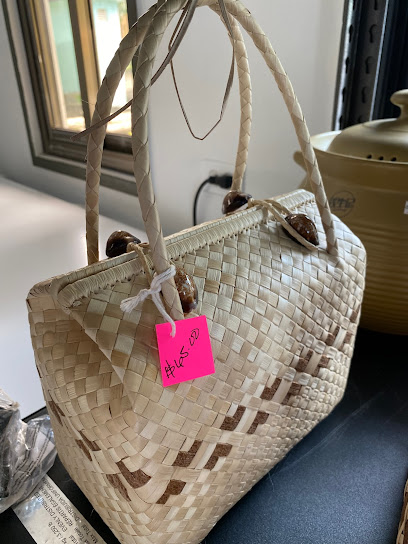
Palau Emporium Beauty Shop
Explore the vibrant fashion scene at Palau Emporium Beauty Shop in Koror, featuring a unique blend of contemporary and traditional styles.
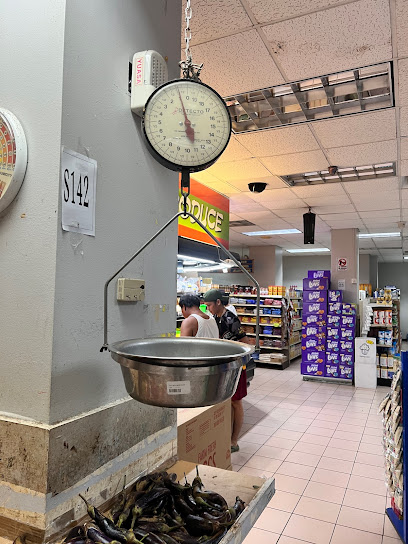
Palau Royal store
Explore local flavors at the Palau Royal Store, your essential grocery stop for fresh produce and authentic Palauan products in Meyungs.
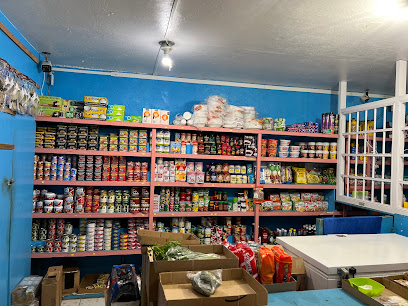
YOLT GIFT SHOP
Discover the unique charm of Palau at YOLT Gift Shop, your ultimate destination for handcrafted souvenirs and local artistry.

Essential bars & hidden hideouts
Drop Off Bar and Grill
Experience the vibrant culinary scene at Drop Off Bar and Grill in Koror, Palau, where tropical flavors and ocean views come together.
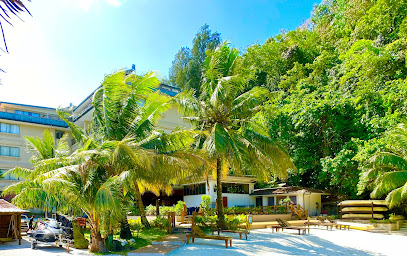
Palau Hotel
Discover the flavors of Palau at Palau Hotel, where local cuisine meets international flair in a cozy setting.
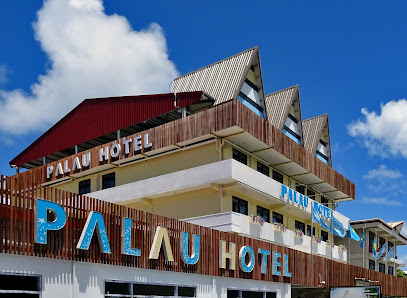
Palasia Hotel Palau
Discover the luxury of Palasia Hotel in Koror, Palau – where comfort meets adventure in a tropical paradise.
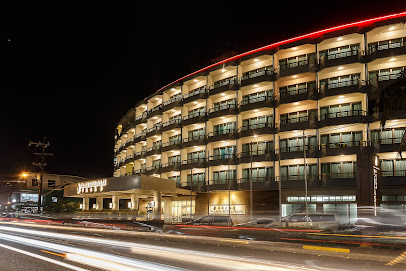
The Taj
Experience authentic Indian cuisine at The Taj in Koror, Palau, offering a delightful culinary journey with rich flavors and warm hospitality.
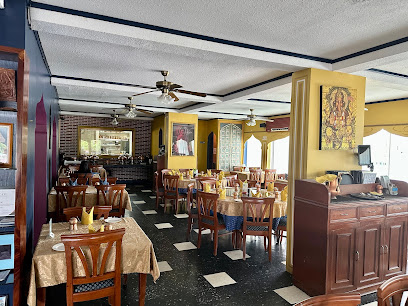
Elilai Seaside Dining
Discover the exquisite flavors of local cuisine at Elilai Seaside Dining, where fine dining meets breathtaking ocean views in Koror, Palau.
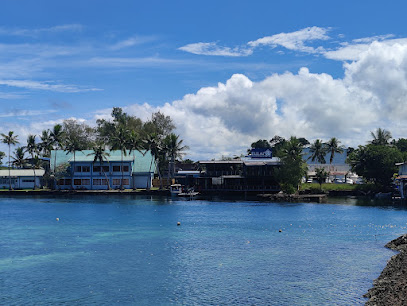
Sam's Tours Palau
Discover the underwater wonders of Palau with Sam's Tours, your ultimate dive shop and tour operator for unforgettable marine adventures.
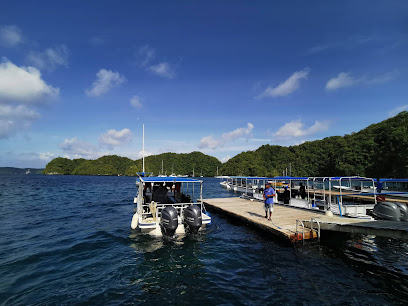
Fish 'n Fins Palau
Experience the underwater paradise of Palau with Fish 'n Fins, your ultimate scuba tour agency for unforgettable diving adventures.
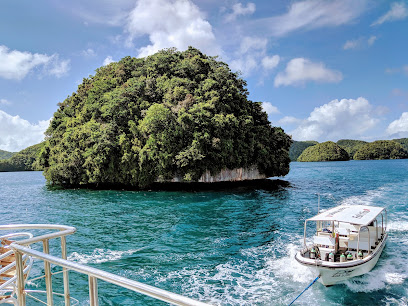
The Canoe House
Discover the lively atmosphere and diverse menu at The Canoe House in Koror, Palau - a perfect blend of local flavors and entertainment.
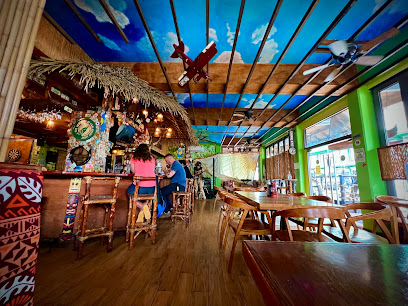
Palau Central Hotel
Discover unparalleled comfort and hospitality at Palau Central Hotel, your ideal base for exploring the stunning beauty of Palau.
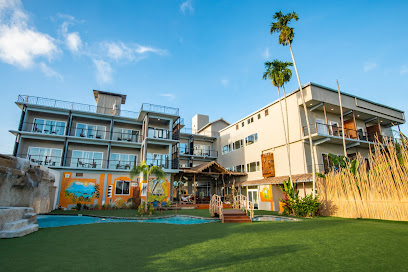
Palm Bay Bistro
Experience the best of Pan Asian cuisine at Palm Bay Bistro, a culinary haven in Malakal, Palau, where flavors meet tradition.
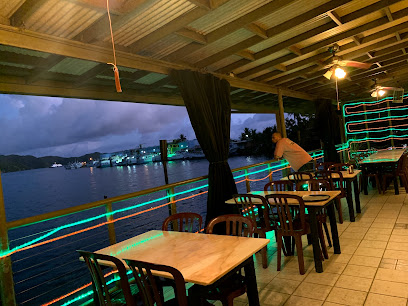
Palau Plantation Resort
Experience the ultimate tropical escape at Palau Plantation Resort, where luxury meets the beauty of nature in Koror, Palau.

Carp Restaurant
Experience the culinary paradise of Carp Restaurant, offering authentic Palauan dishes in a vibrant setting in Koror.
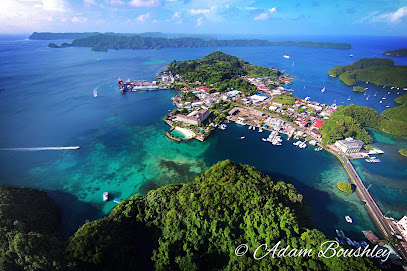
Rose Garden Resort
Experience the perfect blend of relaxation and adventure at Rose Garden Resort in Palau, offering stunning views and luxurious amenities.

Red Rooster Cafe
Discover the flavors of Palau at Red Rooster Cafe, where local ingredients meet international cuisine in a cozy setting.
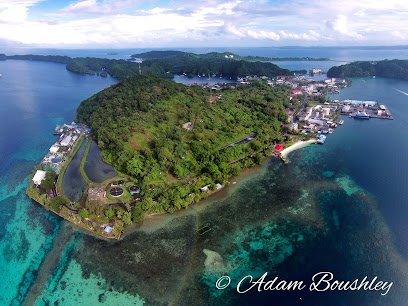
Krämer’s Bar and Restaurant
Experience the vibrant culinary scene at Krämer’s Bar and Restaurant, where local flavors and tropical vibes meet in the heart of Palau.
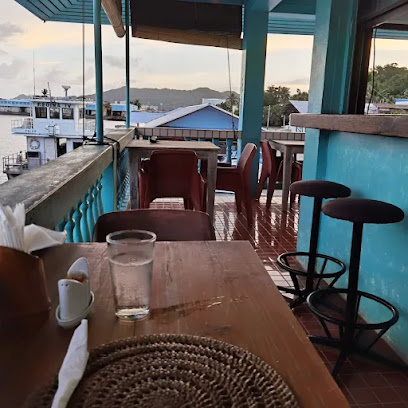
Local Phrases
-
- HelloAlii
[Ah-lee] - GoodbyeSulang
[Soo-lang] - YesEwe
[Eh-way] - NoChelid
[Cheh-lid] - Please/You're welcomeKmal mesulang
[Kuh-mahl meh-soo-lang] - Thank youSulang
[Soo-lang] - Excuse me/SorryKmal meral di chad
[Kuh-mahl meh-rahl dee chad] - How are you?Kemam a kmal mesisiich?
[Keh-mahm ah kuh-mahl meh-see-seech?] - Fine. And you?Sisiich a, oh a kmal mesisiich?
[See-see-seech ah, oh ah kuh-mahl meh-see-seech?] - Do you speak English?Ng diak el kmo ngak er tirke el kebliil?
[Ng dee-ahk el kmo ngahk ehr teer-kehl ehl keh-blee-ihl?] - I don't understandA di mengetekl
[Ah dee men-geht-ehkl]
- HelloAlii
-
- I'd like to see the menu, pleaseAk mo melai a rengul a menu
[Ahk moh meh-lai ah rehng-ool ah meh-noo] - I don't eat meatA di chimolbekakl
[Ah dee chee-mohl-beh-kahkl] - Cheers!Ungil tutau
[Oong-geel too-tow] - I would like to pay, pleaseAk mo meral di tang
[Ahk moh meh-rahl dee tahng]
- I'd like to see the menu, pleaseAk mo melai a rengul a menu
-
- Help!Mei
[Meh-ee] - Go away!Mla mekngit
[Mah-lah meh-kngeet] - Call the Police!Mengedub
[Mehng-geh-doob] - Call a doctor!Mengedeu
[Mehng-geh-doo] - I'm lostA diak lebo er a beluu
[Ah dee-ahk leh-boh ehr ah beh-loo] - I'm illA di meral mengedub
[Ah dee meh-rahl mehng-geh-doob]
- Help!Mei
-
- I'd like to buy...Ak mo meral di bechil
[Ahk moh meh-rahl dee bech-eel] - I'm just lookingA di mechitechad
[Ah dee meh-chee-teh-chad] - How much is it?Ongal ta
[Ong-ahl tah] - That's too expensiveA rirel a meral mengui
[Ah ree-rel ah meh-rahl mehng-wee] - Can you lower the price?Mengui a meral diak
[Mehng-wee ah meh-rahl dee-ahk]
- I'd like to buy...Ak mo meral di bechil
-
- What time is it?Kemam a kmal mei?
[Keh-mahm ah kuh-mahl meh-ee?] - It's one o'clockKedei er a chim
[Keh-deh-ee ehr ah cheem] - Half past (10)A chedam er ngak
[Ah cheh-dahm ehr ngahk] - MorningNgalek a blil a sang
[Ngah-lehk ah bleel ah sahng] - AfternoonNgalek a blil a uchul a klengar
[Ngah-lehk ah bleel ah oo-chool ah klehn-gahr] - EveningNgalek a blil a ngelekel
[Ngah-lehk ah bleel ah ngel-eh-kel] - YesterdayA kmal di kudengei
[Ah kuh-mahl dee koo-dehn-gay] - TodayA kmal di kmo ngak
[Ah kuh-mahl dee kmo ngahk] - TomorrowA kmal di kau
[Ah kuh-mahl dee kow] - 1Chim
[Cheem] - 2Ngak
[Ngahk] - 3Telu
[Teh-loo] - 4Fa
[Fah] - 5Leleng
[Leh-leng] - 6Uor
[Wohr] - 7Kedei
[Keh-deh-ee] - 8Kedam
[Keh-dahm] - 9Kedeu
[Keh-doo] - 10Kuluk
[Koo-look]
- What time is it?Kemam a kmal mei?
-
- Where's a/the...?Ng diak a/er...
[Ng dee-ahk ah/ehr...] - What's the address?Kemam a chemaod?
[Keh-mahm ah cheh-mowd?] - Can you show me (on the map)?Mengui a meral di chelid
[Mehng-wee ah meh-rahl dee cheh-lid] - When's the next (bus)?Kemam a kmal me kmal diak?
[Keh-mahm ah kuh-mahl meh kuh-mahl dee-ahk?] - A ticket (to ....)A bilel el chad er a...
[Ah bee-lehl ehl chad ehr ah...]
- Where's a/the...?Ng diak a/er...
History of Koror
-
Koror, part of the island nation of Palau, has been inhabited for thousands of years. Archaeological evidence suggests that the first settlers arrived from Southeast Asia around 3,000 years ago. These early inhabitants developed complex societies and were adept at seafaring, which allowed them to navigate and settle across the vast Pacific Ocean.
-
The first recorded European contact with Koror occurred in the 16th century when Spanish explorers arrived. However, it wasn't until the late 18th century that more consistent interactions began, primarily through British and German traders and explorers. These interactions introduced new goods and ideas to Koror but also brought diseases that affected the local population.
-
In 1899, Koror and the rest of Palau were sold by Spain to Germany following the Spanish-American War. During the German colonial period, Koror saw the introduction of modern infrastructure, including schools and hospitals. The Germans also established coconut plantations and other agricultural endeavors, which began to change the local economy.
-
Following World War I, Koror came under Japanese administration as part of the South Seas Mandate granted by the League of Nations. The Japanese period (1914-1944) was marked by significant development. Koror became a central hub for Japanese administration and military operations in the Pacific. Infrastructure improvements included roads, buildings, and a seaplane base.
-
World War II had a profound impact on Koror. As a strategic location in the Pacific, Koror was heavily fortified by the Japanese. In 1944, the Battle of Peleliu, part of the larger Pacific campaign, brought significant military activity to the region. While Koror itself was not the site of major battles, the war left lasting scars on the island and its people.
-
After World War II, Koror came under the administration of the United States as part of the Trust Territory of the Pacific Islands. This period saw the reconstruction of war-damaged infrastructure and the introduction of American educational and governmental systems. The U.S. administration also laid the groundwork for Palau's eventual move towards independence.
-
Koror became the capital of the newly independent Republic of Palau in 1994. With independence, Koror has continued to develop as a cultural and economic center. The city is known for its vibrant culture, stunning natural beauty, and historical sites that reflect its rich and varied past. Today, Koror is a popular destination for tourists from around the world, drawn by its unique blend of history, culture, and natural wonders.
Koror Essentials
-
Koror is the largest city in Palau and serves as its commercial center. The main entry point is through the Roman Tmetuchl International Airport (ROR), located on Babeldaob Island, which is connected to Koror by the Japan-Palau Friendship Bridge. Direct flights to ROR are available from major cities like Manila, Taipei, and Guam. Once you arrive at the airport, you can take a taxi or arrange for a hotel shuttle to get to Koror, which is about a 20-minute drive.
-
Transportation within Koror is primarily by taxi, which are plentiful and relatively inexpensive. Car rentals are available and provide the most flexibility for exploring the surrounding areas. Public buses operate on a limited schedule, and bike rentals are also a good option for getting around the compact city. Walking is feasible for short distances, especially within the central areas of Koror.
-
The official currency in Palau is the United States Dollar (USD). Credit cards are widely accepted in hotels, restaurants, and larger shops, but it is advisable to carry cash for smaller establishments and local markets. ATMs are available, particularly in Koror, but fees may be high for international cards, so withdrawing larger amounts at a time might be more economical.
-
Koror is generally very safe for tourists. Violent crime is rare, but petty theft can occasionally occur, so it’s wise to be vigilant, especially in crowded areas. The neighborhoods in Koror do not have high crime rates targeting tourists, but standard precautions like not leaving your belongings unattended and avoiding poorly lit areas at night should be followed.
-
In case of emergency, dial 911 for immediate assistance. The main hospital in Palau, Belau National Hospital, is located in Koror and offers medical services. For minor health issues, pharmacies are available throughout the city. It is recommended to have travel insurance that covers medical emergencies. The local police station is also situated in Koror for any security-related issues.
-
Fashion: Do dress casually but modestly. Avoid wearing overly revealing clothing, especially when visiting cultural or religious sites. Religion: Do respect local customs and traditions. Cover your shoulders and knees when visiting religious places. Public Transport: Do be courteous and patient, as public transport can be limited. Greetings: Do greet people with a friendly smile and a slight nod. Handshakes are common, but not obligatory. Eating & Drinking: Do try local dishes and accept food offerings graciously. Don't waste food; it is considered disrespectful.
-
To experience Koror like a local, visit the local markets such as the Night Market for fresh produce and traditional Palauan goods. Engage with locals, who are often friendly and eager to share stories about their culture and history. Don’t miss out on visiting the Rock Islands and Jellyfish Lake for their unique natural beauty. Consider attending a traditional Bai meeting house to learn more about Palauan history and customs.
Nearby Cities to Koror
-
Things To Do in Koror Town
-
Things To Do in Airai
-
Things To Do in Ngatpang
-
Things To Do in Ngchesar
-
Things To Do in Ngaremlengui
-
Things To Do in Melekeok
-
Things To Do in Ngerulmud
-
Things To Do in Ngardmau
-
Things To Do in Ngaraard
-
Things To Do in Yap
-
Things To Do in Siargao
-
Things To Do in Davao City
-
Things To Do in Cagayan de Oro
-
Things To Do in Camiguin
-
Things To Do in Bohol







